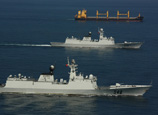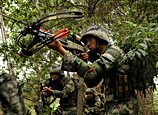
In 2012, the United States has been suffering repeated setbacks in its strategies in the Middle East.
Firstly, it has a decline in the soft power and a loss of support of local people.
According to mass observation of U.S. Zogby Company, 78 percent of Arabians hate the United States and 80 percent regard the United States and Israel as their biggest security threat.
Secondly, Islamic forces rose in the Middle East. With the political turmoil sweeping through countries in the region, the Islamic forces especially Muslim Brotherhood become more and more active. Making use of the popularization of U.S.-style democracy, they have won power or got the upper hand in the parliaments of Tunisia, Egypt, Morocco, Kuwait, Libya, Yemen and other countries, thus changing the political map of the Middle East.
They make use of the U.S.-style democracy but oppose such democracy. They hate the United States’ dominating the international affairs and adhere to independence and non-alignment.
In addition, Iran gradually grows strong and insubordinate. In the face of the threat of the United States over the past one year, it carried out arms expansion and war preparations, developed military enterprises, increased national defense strength and held a series of military exercises.
 |














 Nutritious lunch provided in Taipei's elementary school
Nutritious lunch provided in Taipei's elementary school


![]()
